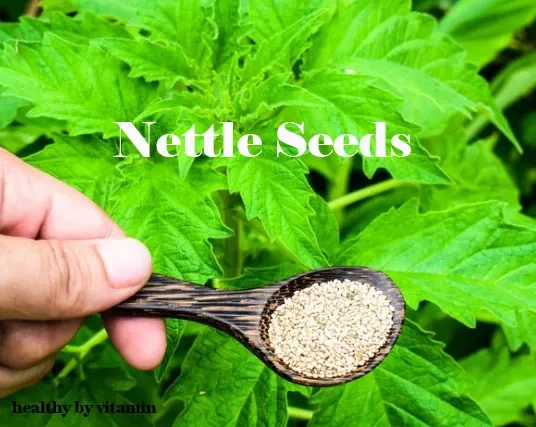Vitamin C, also known as ascorbic acid, is probably one of the most highly publicized, yet least understood, of all of the vitamins. Championed by Nobel laureate Linus Pauling, Ph.D., and advocated by many nutrition buffs, vitamin C is indeed a fascinating and important nutrient (or micronutrient) necessary for human life.
In this edition of How Stuff Works, Dr. Jerry Gordon takes us on a fascinating tour of vitamin C, and shows why this vitamin is so important to your body!
The BasicsTo understand vitamin C, we first need some information about vitamins in general. The word vitamin is derived from the combination of words: vital amine. Vitamins are organic (carbon containing) molecules that mainly function as catalysts for reactions within the body. A catalyst is a substance that allows a chemical reaction to occur using less energy and less time than it would take under normal conditions. If these catalysts are missing, as in a vitamin deficiency, normal body functions can break down and make a person susceptible to disease.
Vitamins are required by the body in tiny amounts (hundredths of a gram in many cases). We get vitamins from three sources:
- Foods
- Beverages
Our own bodies - vitamin K comes from bacteria within our intestines and vitamin D is produced with the help of ultraviolet radiation on the skin.
Vitamins are either fat-soluble or water-soluble. The fat-soluble vitamins can be remembered with the mnemonic ADEK, for the vitamins A, D, E, and K. These vitamins accumulate within the fat stores of the body and within the liver. Fat-soluble vitamins are often associated with toxicity when taken in large amounts. Water-soluble vitamins include vitamin C and the B vitamins. Water-soluble vitamins taken in excess are excreted in the urine and are not usually associated with toxicity. Both vitamin C and the B vitamins are also stored in the liver.
It is interesting to note that most animals produce their own vitamin C. Man, primates (apes, chimps, etc.) and guinea pigs have lost this ability. Due to this similarity with man, guinea pigs have been subjected to experimentation over the years.
Why is Vitamin C important?Vitamin C is important to all animals, including humans, because it is vital to the production of collagen. Vitamin C is also important because it helps protect the fat-soluble vitamins A and E as well as fatty acids from oxidation. Vitamin C prevents and cures the disease scurvy, and can be beneficial in the treatment of iron deficiency anemia.
I have to confess that until I got to college, I had only a vague idea what collagen was, and why it was so important. Collagen is the most ubiquitous substance in the body because it is the most abundant of the fibers contained in connective tissue. Connective tissue gives our body form and supports our organs. To give you an idea of how important collagen is, here is a list of the five types of collagen, and where they are used in the body.
Type 1 - Connective tissue of skin, bone, teeth, tendons, ligaments, fascia, organ capsules
Type 2 - Cartilage
Type 3 - Connective tissue of our organs (liver, spleen, kidneys, etc.)
Type 4, 5 - The separating layer between epithelial and endothelial cells as well as between skeletal or smooth muscle cells (basal lamina), kidney glomeruli, lens capsule, and Schwann and glial cells of the nervous system.
As you can see, collagen is everywhere in the body, and vitamin C plays a role in the formation of collagen. So, how is vitamin C involved in collagen synthesis?
When collagen is produced, there is a complex series of events, some occurring inside of the cell, and some outside of the cell. Vitamin C is active inside of the cell, where it hydroxylates (adds hydrogen and oxygen) to two amino acids: proline and lysine. This helps form a precursor molecule called procollagen that is later packaged and modified into collagen outside of the cell. Without vitamin C, collagen formation is disrupted, causing a wide variety of problems throughout the body. (see
How Cells Work for more information about the biochemistry of cells.)
What happens if you don't get enough vitamin C?A deficiency of vitamin C causes the disease Scurvy. Scurvy is rarely seen today except in alcoholics who receive their entire calorie intake from alcohol. Scurvy causes bleeding and inflamed gums, loose teeth, poor wound healing (purplish spots called petechiae), easy bruising, bumps of coiled hair on the arms and legs, pain in the joints, muscle wasting, and many other problems.
It was a Scottish physician named James Lind back in 1753 that first advocated fresh vegetables and ripe fruits to prevent Scurvy. The British Navy adopted his advice some forty years later. The navy men were ever after nicknamed "Limeys" because they took limejuice on long sea voyages to ward off Scurvy.
What are good sources of vitamin C?Vitamin C is found in citrus fruits such as oranges, limes, and grapefruit, and vegetables including tomatoes, green pepper, potatoes and many others. Vitamin C is easily damaged during the food preparation stage, such as during chopping, exposure to air, cooking, boiling, and being submerged in water. The amount of Vitamin C is high enough in most foods that the quantity that remains after processing is usually more than enough for a daily supply.
The recommended dietary allowance (RDA) of vitamin C is 60 to 90 milligrams per day. Men should consume more vitamin C than women and individuals who smoke cigarettes are encouraged to consume 35 more mg of vitamin C than average adults. This is due to the fact that smoking depletes vitamin C levels in the body and is a catalyst for biological processes which damage cells. As little as 5-7 mg a day will prevent scurvy, and the average American gets about 72 mg a day.
It is interesting to note that Vitamin C is used as an inexpensive preservative in many processed foods, making deficiencies even more rare.
What about taking vitamin C supplements?One way an individual can up their intake of vitamin C is through the consumption of vitamin C supplements. A report issued by the Food and Nutrition Board in 2000 sets the upper intake level for vitamin C at 2,000 mg a day for adults. This dosage recommendation includes vitamin C obtained from both the the consumption of food and supplements containing vitamin C.
Can Vitamin C cure a cold or cancer?Nobel laureate Linus Pauling, Ph.D., in his last interview months before his death (April 1994), continued to advocate high doses (megadoses) of vitamin C to cure and prevent colds, prolong the lives of terminal cancer patients, and prevent other ailments. The basic premise of his avocation of vitamin C in these doses was that because man was one of the few animals that do not produce its own vitamin C, it is somehow a design flaw in our genetic make-up. He calculated that an average adult should need about 10-12 grams of vitamin C daily to prevent a wide range of ailments.
Recent research has indicated that the intake of of antioxidants like vitamin C can prevent or counteract cell damage due to aging and exposure to antioxidants. However, studies have yet to prove that vitamin C's effectiveness at the cell level translates to the prevention of or cure for chronic diseases. High doses of vitamin C at the beginning of a cold has only been shown in some cases to reduce the severity of the symptoms to a modest degree, due to a mild antihistaminic effect. Vitamin C has not been shown to prevent the common cold. Similar high doses of vitamin C used for the treatment of cancer patients have not been found to be beneficial. For example, research done at the Mayo clinic in a double blind trial (neither the doctors or the patients knew who was given the high doses of vitamin C) revealed that those who received the vitamin C in the high doses actually did worse than those who got a placebo.
What's wrong with taking high doses of vitamin C?
Some people believe that because vitamin C is water-soluble, it is safe to take in high doses. While it is best to not exceed the recommended upper intake level of 2,000 mg a day, the most serious possible consequence of an intake above this dosage is diarrhea.
One myth about vitamin C is that it is an antioxidant, but that is not completely true. Vitamin C is a redox agent, meaning that it acts as an antioxidant in some cases, and an oxidant in others. Antioxidants are important because they inhibit chemical reactions with oxygen or highly reactive free radicals. These reactions (oxidation reactions), cause damage to cells. Vitamin C only acts as an antioxidant in some circumstances.
Vitamin C is an important part of a healthy diet. It is not a miracle drug, and may cause harm if taken in extreme excess. A well-balanced, varied diet will ensure that you receive more than enough vitamin C to prevent scurvy and other potential health problems.
by Dr. Jerry Gordon











